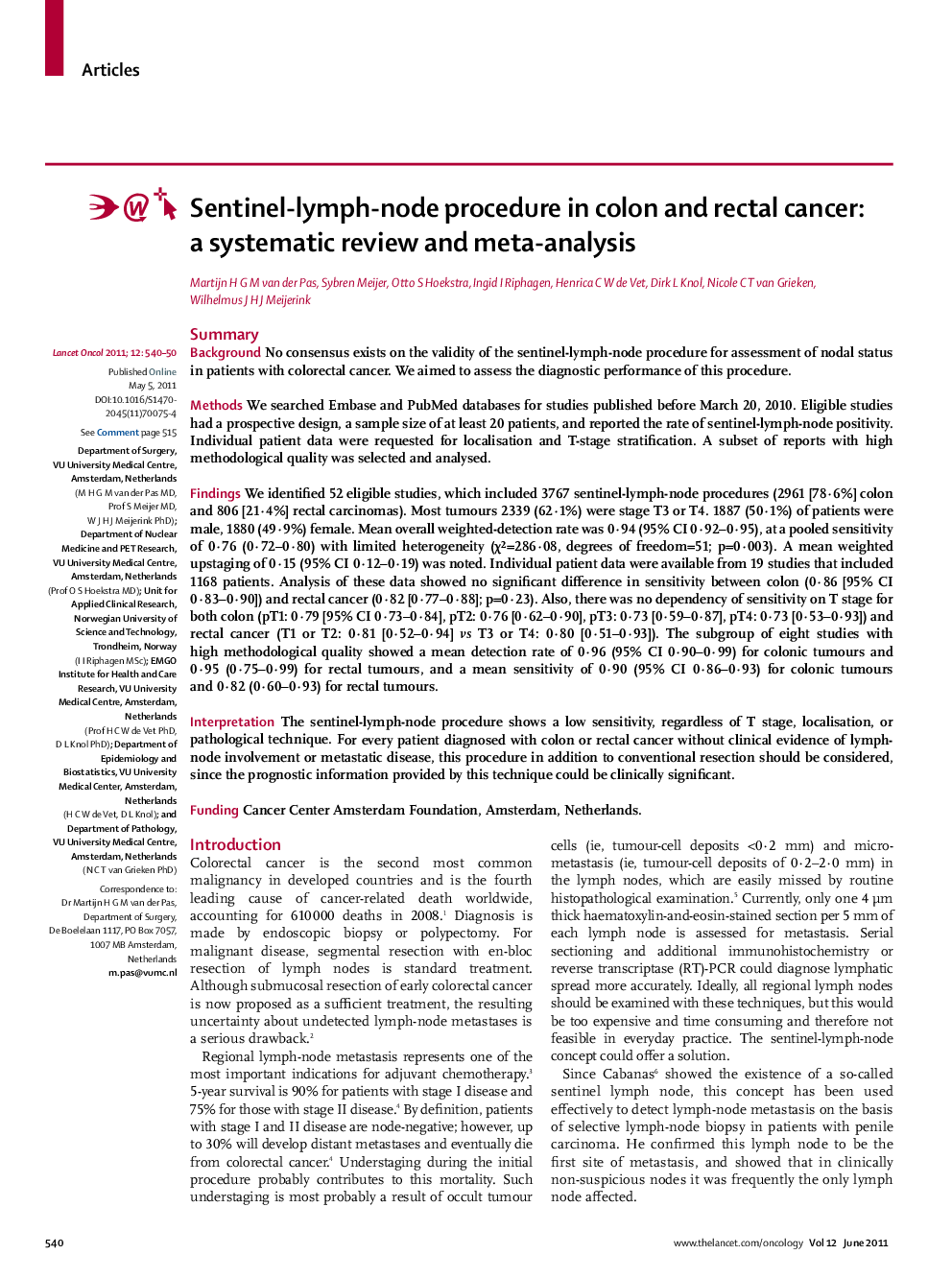| Article ID | Journal | Published Year | Pages | File Type |
|---|---|---|---|---|
| 3994453 | The Lancet Oncology | 2011 | 11 Pages |
SummaryBackgroundNo consensus exists on the validity of the sentinel-lymph-node procedure for assessment of nodal status in patients with colorectal cancer. We aimed to assess the diagnostic performance of this procedure.MethodsWe searched Embase and PubMed databases for studies published before March 20, 2010. Eligible studies had a prospective design, a sample size of at least 20 patients, and reported the rate of sentinel-lymph-node positivity. Individual patient data were requested for localisation and T-stage stratification. A subset of reports with high methodological quality was selected and analysed.FindingsWe identified 52 eligible studies, which included 3767 sentinel-lymph-node procedures (2961 [78·6%] colon and 806 [21·4%] rectal carcinomas). Most tumours 2339 (62·1%) were stage T3 or T4. 1887 (50·1%) of patients were male, 1880 (49·9%) female. Mean overall weighted-detection rate was 0·94 (95% CI 0·92–0·95), at a pooled sensitivity of 0·76 (0·72–0·80) with limited heterogeneity (χ2=286·08, degrees of freedom=51; p=0·003). A mean weighted upstaging of 0·15 (95% CI 0·12–0·19) was noted. Individual patient data were available from 19 studies that included 1168 patients. Analysis of these data showed no significant difference in sensitivity between colon (0·86 [95% CI 0·83–0·90]) and rectal cancer (0·82 [0·77–0·88]; p=0·23). Also, there was no dependency of sensitivity on T stage for both colon (pT1: 0·79 [95% CI 0·73–0·84], pT2: 0·76 [0·62–0·90], pT3: 0·73 [0·59–0·87], pT4: 0·73 [0·53–0·93]) and rectal cancer (T1 or T2: 0·81 [0·52–0·94] vs T3 or T4: 0·80 [0·51–0·93]). The subgroup of eight studies with high methodological quality showed a mean detection rate of 0·96 (95% CI 0·90–0·99) for colonic tumours and 0·95 (0·75–0·99) for rectal tumours, and a mean sensitivity of 0·90 (95% CI 0·86–0·93) for colonic tumours and 0·82 (0·60–0·93) for rectal tumours.InterpretationThe sentinel-lymph-node procedure shows a low sensitivity, regardless of T stage, localisation, or pathological technique. For every patient diagnosed with colon or rectal cancer without clinical evidence of lymph-node involvement or metastatic disease, this procedure in addition to conventional resection should be considered, since the prognostic information provided by this technique could be clinically significant.FundingCancer Center Amsterdam Foundation, Amsterdam, Netherlands.
